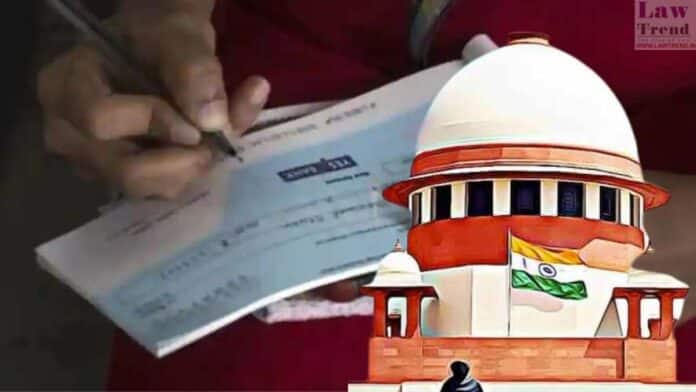In a significant decision, the Supreme Court has reinstated a cheque dishonour case, asserting that concerns over representation and knowledge in complaints filed by companies are issues to be resolved during trial, not at the preliminary stage. Case Background The case, M/s Naresh Potteries v. M/s Aarti Industries and Another (Criminal Appeal No. ___ of
To Read More Please Subscribe to VIP Membership for Unlimited Access to All the Articles, Download Available Copies of Judgments/Order, Acess to Central/State Bare Acts, Advertisement Free Content, Access to More than 4000 Legal Drafts( Readymade Editable Formats of Suits, Petitions, Writs, Legal Notices, Divorce Petitions, 138 Notices, Bail Applications etc.) in Hindi and English.




